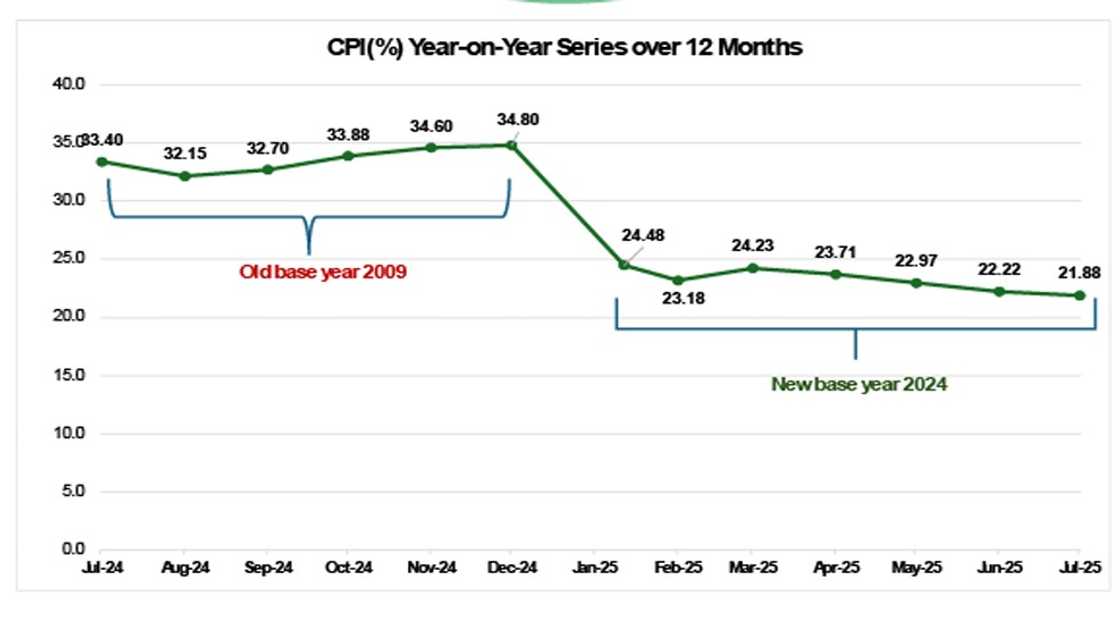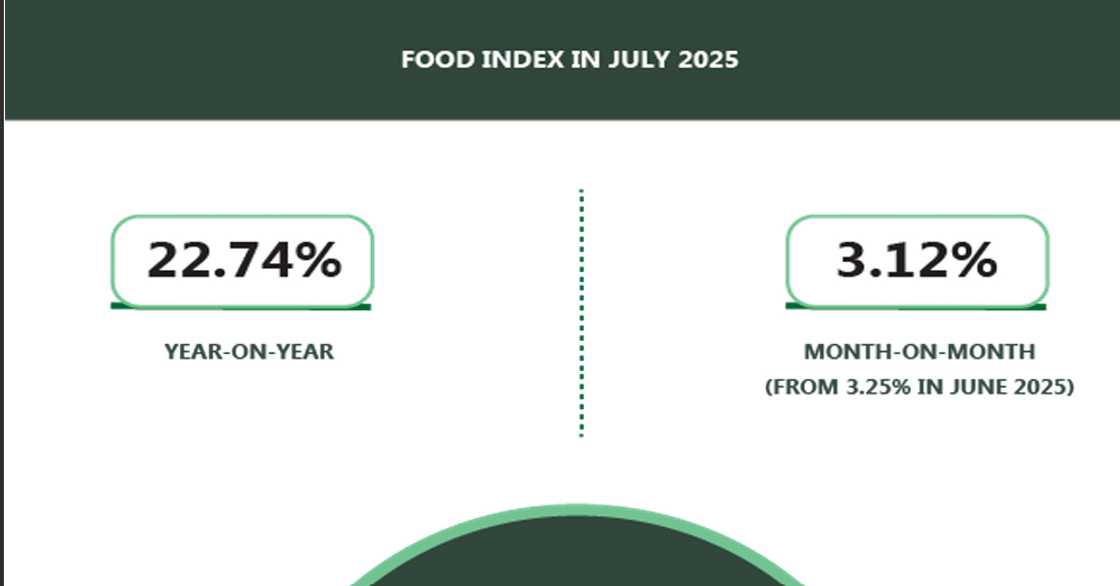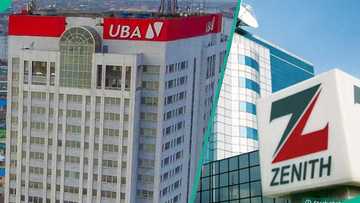Nigeria’s Inflation Rate Drops to 21.88% in July, As Rice, Beans, Other Food Items Prices Change
- The National Bureau of Statistics has revealed that inflation rates dropped in July, just like the previous month
- Data from the NBS showed that both headline and food inflation rates eased year-on-year and month-on-month
- Headline inflation was lowest in Yobe, Zamfara, and Katsina states, while the highest was recorded in Borno and Yobe
Legit.ng journalist Dave Ibemere has over a decade of business journalism experience with in-depth knowledge of the Nigerian economy, stocks, and general market trends.
The National Bureau of Statistics (NBS) has announced that Nigeria’s headline inflation rate eased for the fourth consecutive month in July 2025, falling to 21.88% from 22.22% in June.

Source: Facebook
The latest Consumer Price Index (CPI) report, released on Friday, August 15 showed that the July rate was 0.34 percentage points lower than the previous month and 11.52 percentage points below the 33.40% recorded in July 2024.
The CPI (Consumer Price Index) measures the average changes over time in prices of goods and services consumed by people.
NBS report highlights
According to NBS report, CPI rose to 125.9 in July 2025, up from 123.4 in June.
The report stated:
"On a month-on-month basis, the headline inflation rate in July 2025 was 1.99%, which was 0.31 percentage points higher than the 1.68% recorded in June 2025. This indicates that in July, the average price level increased at a faster rate than in June.
"The percentage change in the average CPI for the twelve months ending July 2025, compared to the average for the previous twelve-month period, was 25.65%, representing a 5.11 percentage point decrease from the 30.76% recorded in July 2024."
Food inflation
The NBS reported that in July 2025, it stood at 22.74% on a year-on-year basis, 16.79 percentage points lower than the 39.53% recorded in July 2024.
- Year-on-year: 22.74% in July 2025, down from 39.53% in July 2024.
- Month-on-month: 3.12%, slightly below the 3.25% recorded in June 2025.

Source: Facebook
NBS stated that the moderation was driven by slower price increases in vegetable oil, local rice, maize flour, guinea corn, wheat flour, and millet.
- Urban and rural inflation
- Urban inflation (year-on-year): 22.01%
- Rural inflation (year-on-year): 21.08%
- Month-on-month: Rural prices rose faster at 2.30% compared to 1.86% in urban areas.
Inflation breakdown by states
- Highest headline inflation (year-on-year): Borno (34.52%), Niger (27.18%), Benue (25.73%).
- Lowest headline inflation (year-on-year): Yobe (11.43%), Zamfara (12.75%), Katsina (15.64%).
Although headline inflation has continued to moderate on an annual basis, the reality is that the cost of living remains high for many Nigerians.
Reacting to the latest inflation figure, Muda Yusuf told Legit.ng that the July 2025 inflation figures present a mixed outlook for the Nigerian economy, with notable improvements in some key indicators but lingering risks that demand policy attention.
He noted:
"The July 2025 inflation report provides a basis for cautious optimism. While progress has been made in moderating headline and core inflation, the persistence of food inflation and month-on-month price increases highlights unresolved structural weaknesses.
"To consolidate recent gains and steer the economy toward sustained stability, a coordinated mix of monetary, fiscal, and structural interventions will be required."
Prices for beans, garri, rice, yam, and other food items drop
Earlier, Legit.ng reported that the prices of key food commodities have dropped, driven largely by the harvest season and better supply flows into urban centres.
This is according to a commodity price update released by Financial Derivatives Company Limited.
According to the report, various staples such as garri, rice, beans, and palm oil are now on a downward price trend.
Source: Legit.ng





